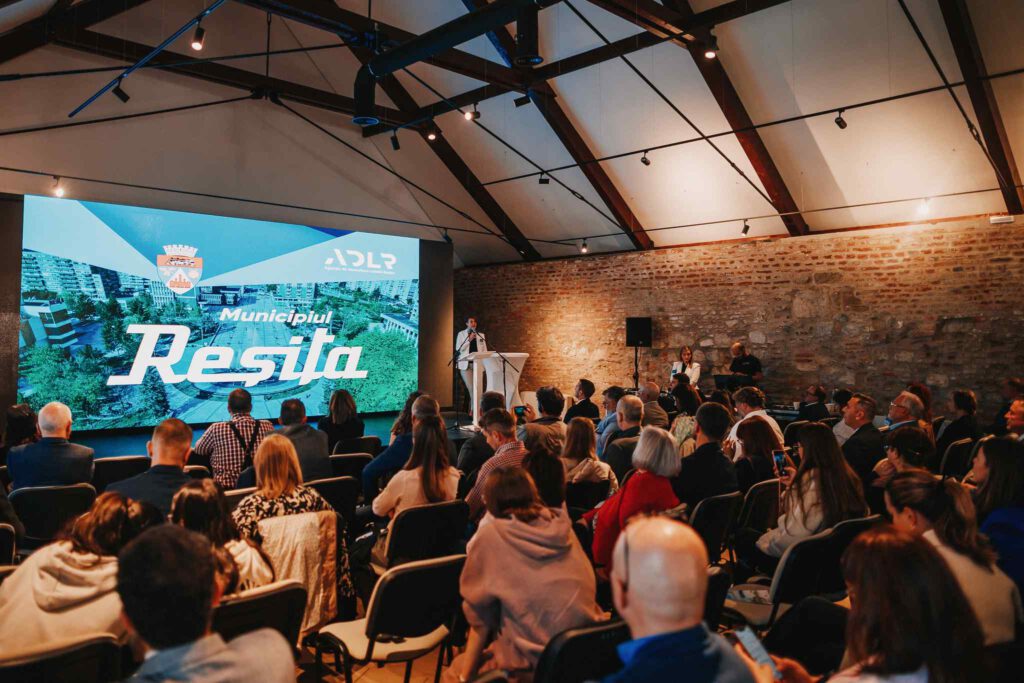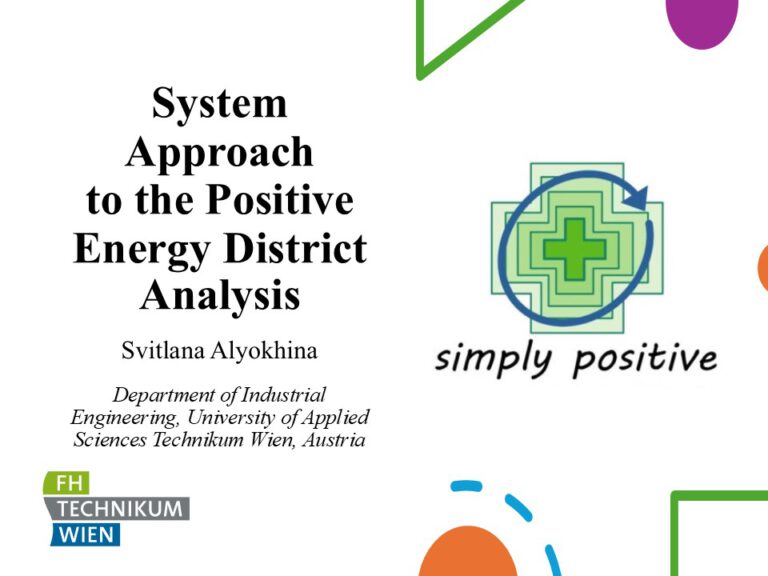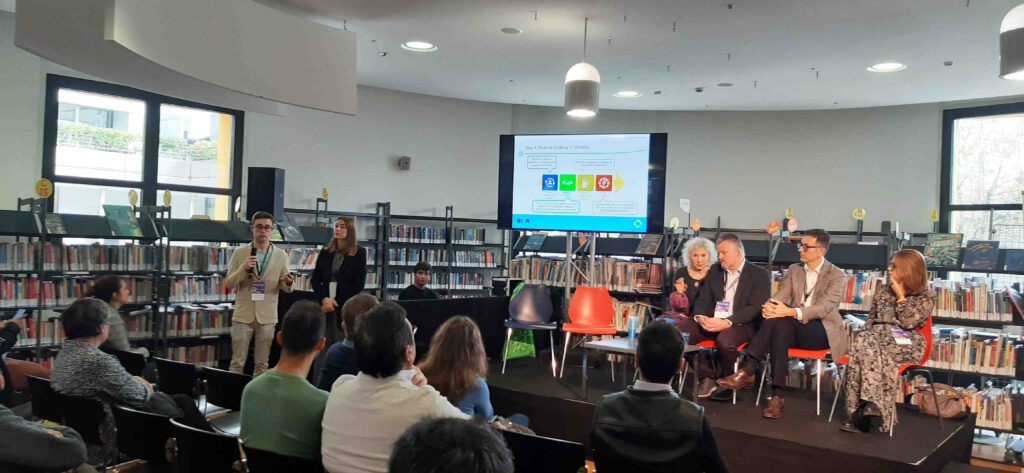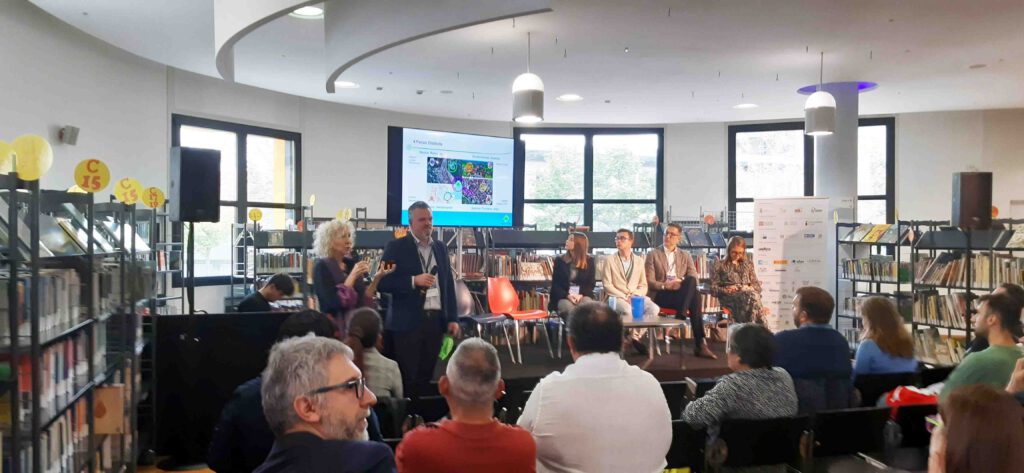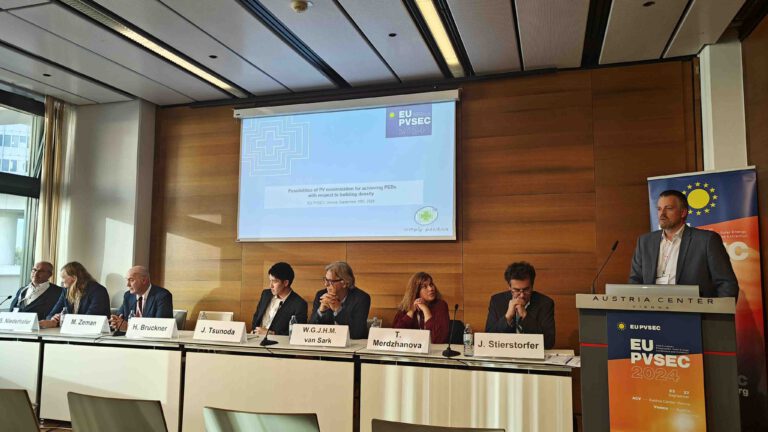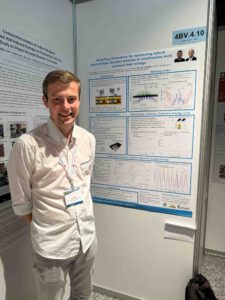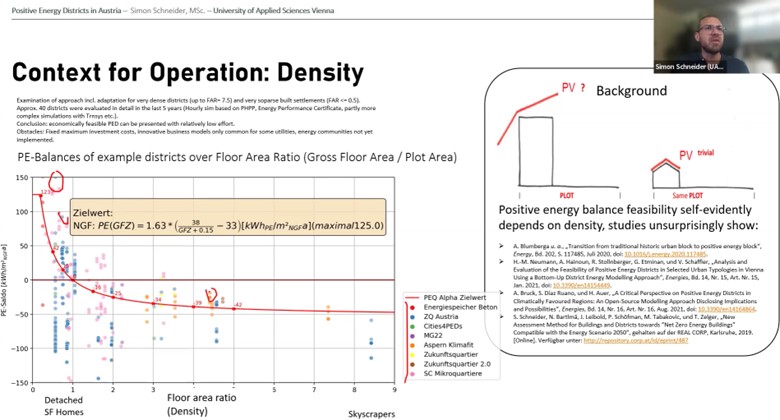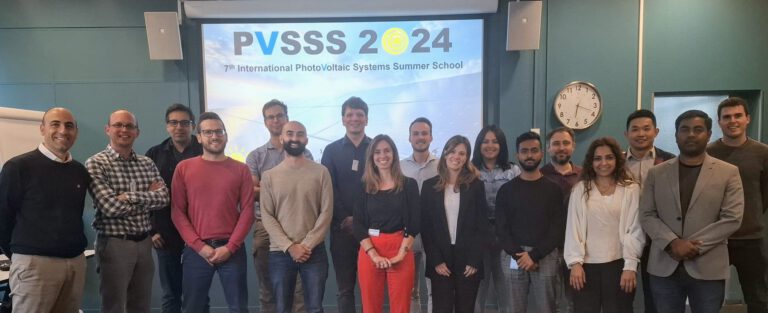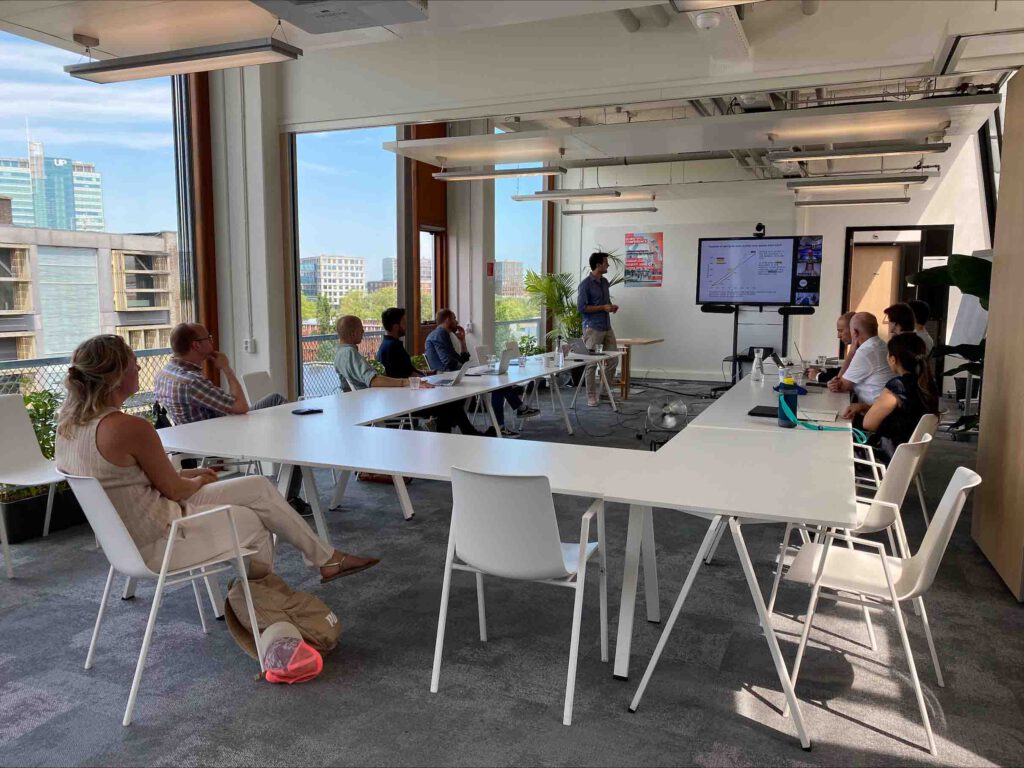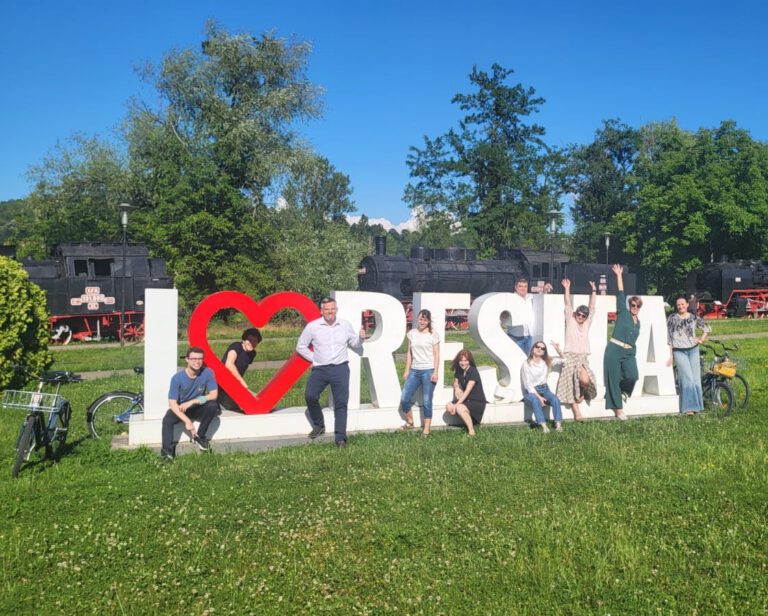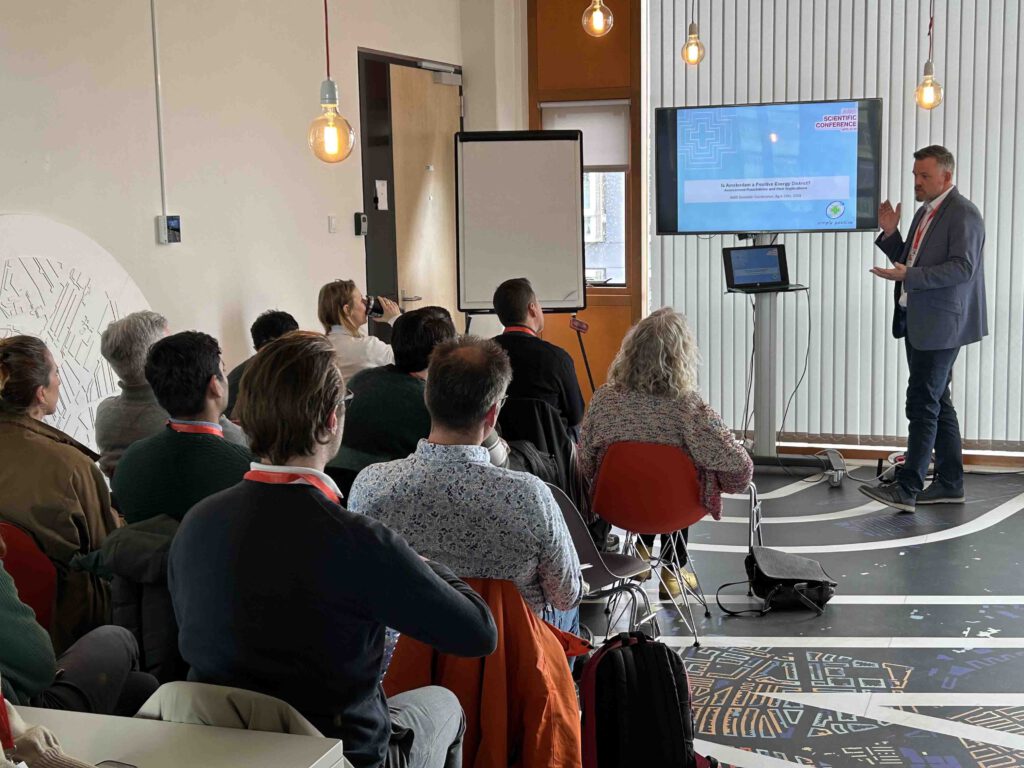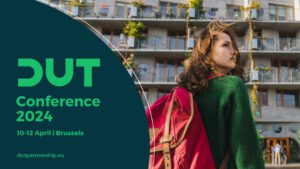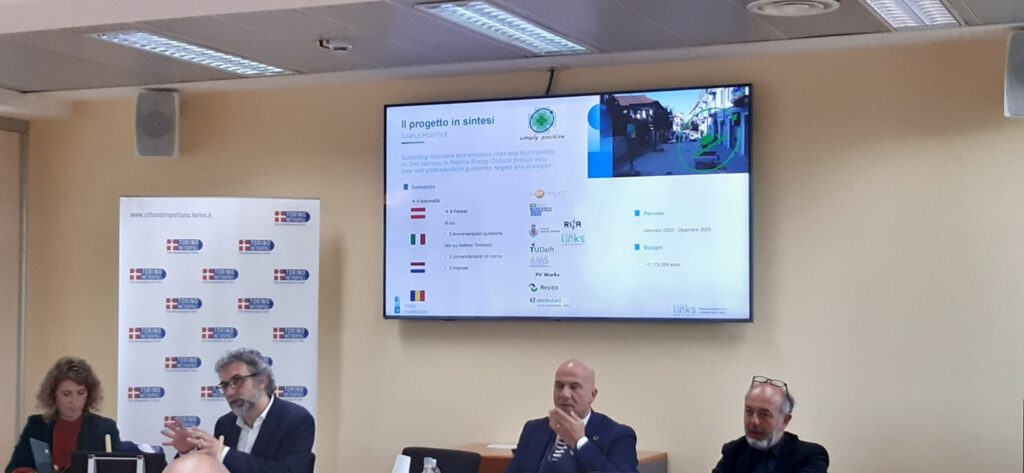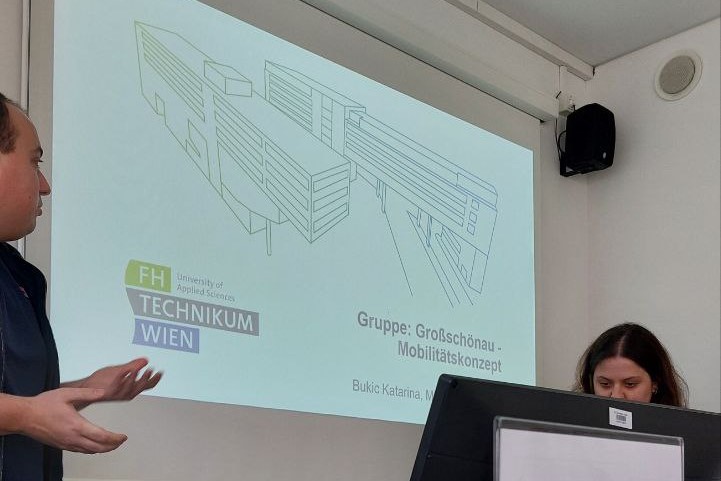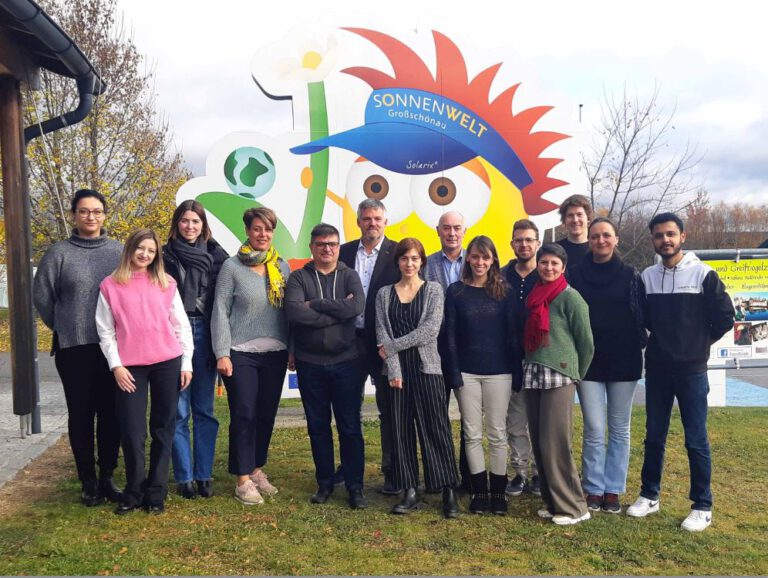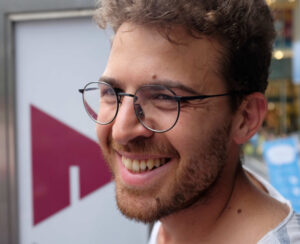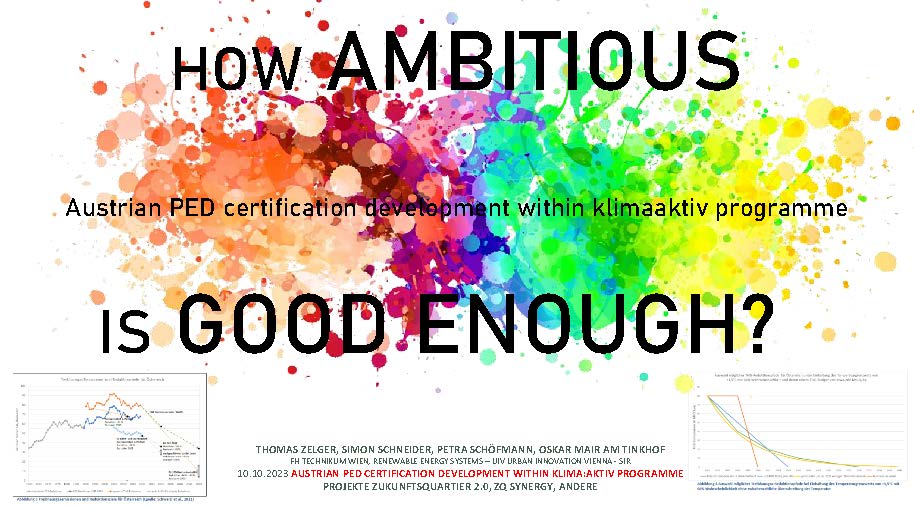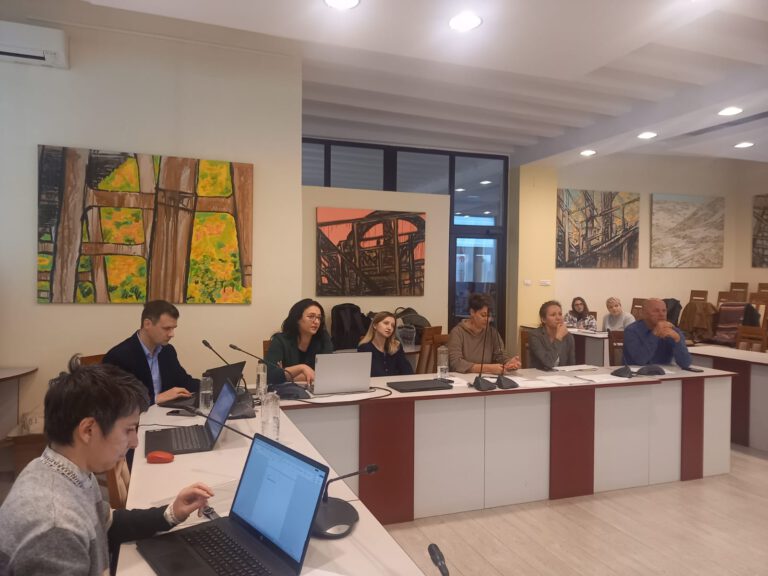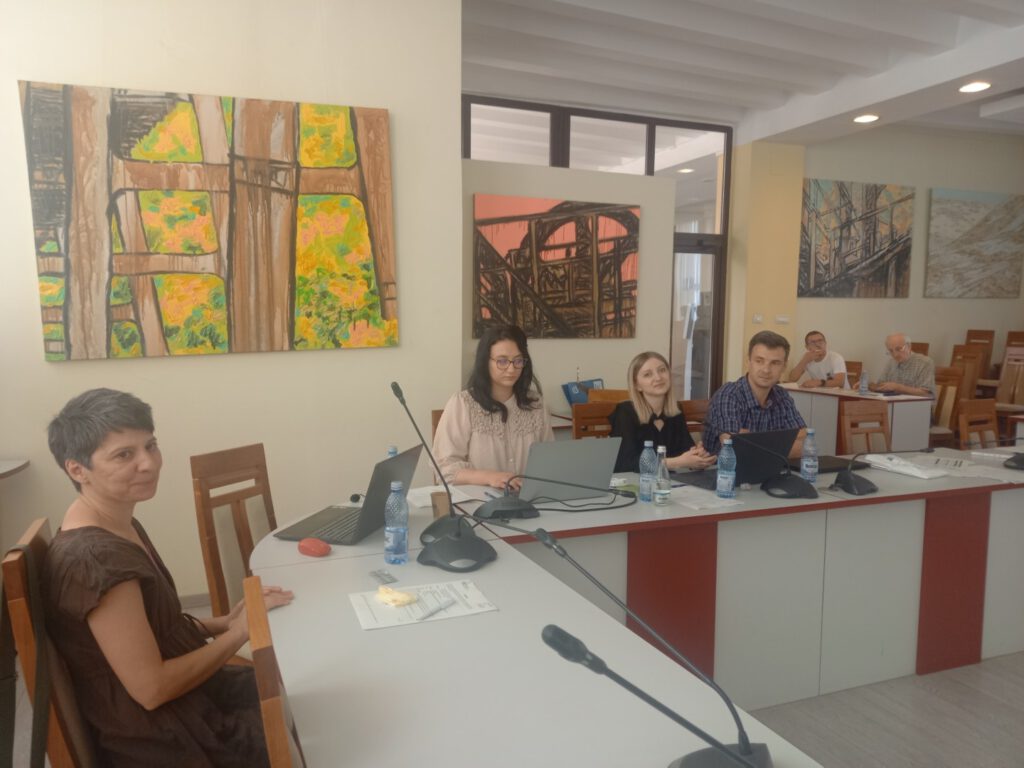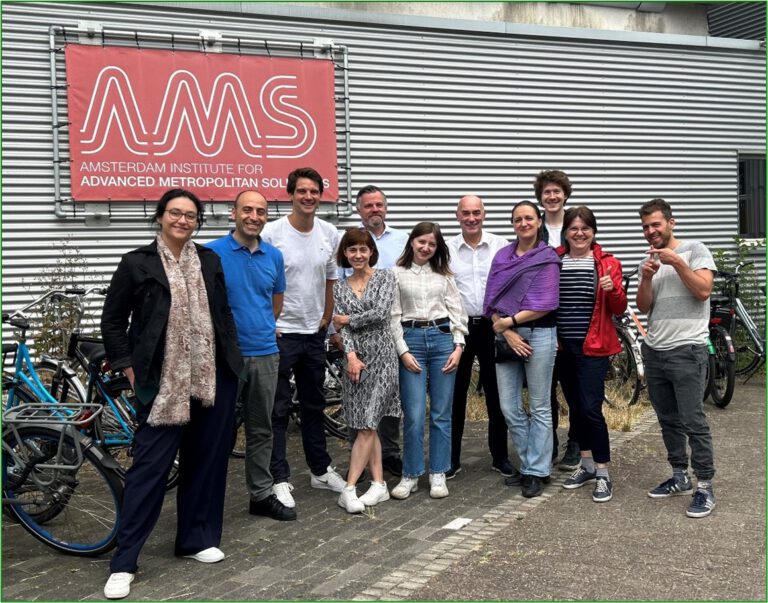
News
"City of Tomorrow 2024" in Oradea city
ADLR – Resita Local Development Agency – was present at the event „Cities of Tomorrow 2024“ – the traditional event, dedicated to the sustainable development of cities and regions in Romania, this year taking place in Oradea.
It was an excellent opportunity to debate, what the city of today is planning for tomorrow. There were discussions about a sustainable city, a city where public transport is easily accessible, clean and cheaper than the personal car, a denser city with social markets for every neighborhood not just in the center, and a city that will continue to develop the economy and be attractive for investments that contribute to its sustainable development.
We look to the future, where the city will be competitive and sustainable, an energy resilient city, a city with better education, a digital and safe city and last but not least, a city where the local administration creates the right conditions for people and companies to develop and change mindsets.
In this event, the Simply Positive project was presented to show the main results and create more awareness about the topic.
International Scientific and Technical Conference on Mechatronic Systems, held by the National University of Radio Electronics (NURE) in Kharkiv, Ukraine
Partners from UAS Technikum Wien presented their report in the section „System Engineering“ at the International Scientific and Technical Conference on Mechatronic Systems. The conference provided an excellent platform for disseminating the latest developments and findings of the SIMPLYPositive project.
During the conference, innovations in Positive Energy Districts and their role in enhancing urban sustainability were highlighted. The attention was focused on differences in PED’s analysis and the importance of consider them as a system. A system engineering approach can significally improve the quality of the energy balance evaluation and further the implementaion of a PED.
The presentation was met with great interest, sparking productive discussions on the future of PEDs, their potential in reshaping urban energy systems and the role of the system engineering methods in it.
Festival of Innovation and Science in Settimo Torinese - a key event in the national landscape of scientific dissemination, spanning 11 editions
This edition of the Festival explored the concept of FRONTIERS through a diverse program of events, ranging from science and technology to the humanities and innovation. It focused on scientific advancements, social challenges, and interdisciplinary synergies, integrating fields like neuroscience, artificial intelligence, and emerging technologies. The aim was to offer insights into overcoming present limitations and unlocking future possibilities.
The segment „Sustainability and Renewable Energy“ explored the frontiers of sustainability, discussing climate change, renewable energy, environmental conservation, and migration. In this context, a panel with Sonnenplatz Großschönau (coordinator of the Simply Positive project), LINKS, RINA-C, IREN, and Settimo Torinese presented the results of the Simply Positive project, 20 months after its start, and discussed Positive Energy Districts and Energy Communities. This session focused on technologies and methods to transform urban districts into climate-neutral cities.
European Photovoltaic Solar Energy Conference and Exhibition – EU PVSEC in Vienna
The EU PVSEC is the largest international conference for photovoltaic research, technologies, and applications. It also exhibits the PV industry, where companies present technologies, innovations, and new concepts in the upstream PV sector.
During this year’s EU PVSEC in Vienna end of September, TU Delft and PV Works presented results of the project “Simply positive” with two poster presentations. The first showed an economic and environmental comparative analysis of photovoltaic-thermal system performance across diverse climates. The second presented models for optimizing hybrid photovoltaic-thermal systems in combination with seasonal heat storage. The posters can be downloaded here.
Project coordinator Helmut Bruckner presented the possibilities of PV maximization for achieving PEDs with respect to building density during the session on Resilience and Security of Supply. Next to PEDs in general, one of the focal points was on PVT collectors, which generate both, electricity and heat. Helmut Bruckner concluded that policy framework and guidelines for PV installations can maximize solar gains while blending into the urban landscape. Automated methods for detection of PV potential, choice of installation modes, and various optimization algorithms support urban planning. Both is important to achieve positive energy district, an ambitious goal especially in already built urban environment.
Seminar Series for Master's Students
The University of Applied Sciences designed a seminar series for Master’s students involved in the research on International Plus-Energy Districts (PED), with a particular focus on the PED analysis of four exemplary districts: Settimo Torinese (IT), Großschönau (AT), Amsterdam (NL), and Resita (RO). The seminars covered the following key topics:
– Development, Modeling, Simulation, Evaluation, and Comparison of Potential District Development Pathways: Students explored various development pathways for the four case study districts by applying advanced energy modeling and simulation techniques. The aim was to assess and compare how different strategies could impact the sustainability and energy performance of these districts.
– Method Development for Quantitative Mobility Assessment in the Context of Urban Development: A method was developed to quantitatively evaluate mobility within the framework of sustainable urban development. This included assessing how mobility choices impact the energy performance and the overall sustainability of the urban areas.
Throughout the seminars, students used a range of analytical techniques including energetic modeling and simulation, with an emphasis on incorporating 3D modeling and scenario development where applicable. The focus was on equipping students with the tools and methodologies needed to model future urban development scenarios, taking into account energy efficiency and sustainability goals.
The seminar series provided valuable insights and hands-on experience, preparing students for real-world applications in urban energy planning and development.
PED Summerschool Dalarny University
During the recent summer school at Dalarna University, 2.-15. September 2024, the University of Applied Sciences took center stage with their insightful lecture titled „Positive Energy District: Context and Definition.“ The presentation offered a detailed exploration of Positive Energy Districts (PEDs), focusing on the context factor and its definition. The lecture highlighted the critical role PEDs play in achieving energy efficiency, integrating renewable energy sources, and fostering sustainable urban development.
Third IEA EBC Annex83 Positive Energy Districts Summer School
From 8th – 12th July 2024 the Positive Energy Districts Summer School, hosted by Joanneum Research, took place in the innovative Science Tower in Graz. The latest finding, demos, pilots and research outcomes on energy resilience, energy flexibility and positive energy buildings were presented and discussed during workshops, demo visits and presentations to around 25 participants from different countries of the European Union.
Simon Schneider (UASTW) presented methodologies of the framework definition of the project and the simulation of the energy balance of workpackage 3.
PV Systems Summer School, TU Delft
During the first week of July, TU Delft in the Netherlands hosted the 7th edition of the successful PV Systems Summer School. Organized by the Photovoltaic Materials and Devices group from the Electrical Sustainable Energy department, the event attracted a diverse audience, including young PhD students and seasoned industry professionals. Participants sought to deepen their knowledge of photovoltaic (PV) solar energy systems and their integration into the overall energy system. Attendees benefited from lectures by internationally renowned PV experts and gained hands-on experience with PV measurements in the TU Delft PV lab.
Stakeholder Workshop, AMS Institute
On Thursday 27th of June, at AMS Institute, there was a workshop about unlocking the solar potential on rooftops in Amsterdam and the Netherlands. Different municipalities attended the workshop, and together with TUDelft and PVWorks, insightful information was shared in an interactive presentation. Results from several interviews with the municipalities have been shared to highlight common challenges and successful interventions. Later, three academic speeches showed the last updates on solar panels and data analysis, dealing with new technologies like PVT and their advantages. A final brainstorming session helped to wrap up the shared ideas and to promote further research and collaboration between parties.
4th Consortium Meeting in Resita
Resita, one of the four Focus Districts in the project “Simply Positive” was the location chosen for the 4th General Assembly on 6th and 7th June 2024. During the 2 days, the partners shared the progress of each workpackage within the project, which is now in its 18th month. We discussed the system boundaries, targets and weightings concerning the energy balance of the Focus Districts. The developed demonstrator, that will help districts to show their progress in saving greenhouse gas emissions and using renewable energy sources, was presented for gathering feedback from the partners. A new tool for the calculation of Photovoltaic potential brought improved results in the last months and the results of the “Sustainable Energy and Climate Action Plan (SECAP)” could be discussed. Finally, we set up the working plan for the final 6 months of the project and decided on the strategy, how all the collected best practice examples and participation strategies can be summed up in the “Best practice booklet”.
The bicycle share system via mobile app enabled a cycling tour through Resita for the participants in beautiful weather.
Reinventing the City Conference, Amsterdam
The AMS Scientific Conference (AMS Conference) from 23. till 25. April 2024 explored and discussed how cities can transform themselves to become more liveable, resilient and sustainable while offering economic stability. With the objective of improving the liveability and sustainability of the world, topics like mobility, circularity, energy transition, climate adaption, urban food systems, digitization, diversity, inclusion, living labs and transdisciplinary research were addressed.
Some of the partners of the project “Simply positive” where among the participants and project leader, Helmut Bruckner, discussed the question “Is Amsterdam a Positive Energy District?” in one of the breakout-sessions. He explained the ambitious target of being a PED, especially in already built environment and pointed out the importance of the energy balance calculation of cities for bringing valuable insights into the benefits of different transition steps. Unfortunately, energy related data availability is a general problematic topic all over Europe. He concluded, that only by using all three energy functions – energy efficiency, energy production and energy flexibility – our 2050 targets will be achievable.
DUT Conference 2024 and PED II midterm meeting
At the DUT Conference 2024 on 10 – 12 April 2024 in Brussels we had the chance to meet with urban leaders, practitioners, researchers, investors, and visionaries at the forefront of sustainable urban transitions from all over Europe. The “Driving Urban Transitions (DUT)” is a European Partnership committed to supporting cities in their journey to become sustainable, resilient, and inclusive.
This conference was also used as midterm meeting of all projects of the PED II call, like SIMPLY POSITIVE. Therefore, the status of the project SIMPLY POSITIVE was presented in a short presentation and by a poster. The participants could learn from each other of implementing Positive Energy Districts strategies, be inspired by Urban Doers and novel approaches and get new insights from experts.
Network of Sustainable Municipalities event, Turin
A ceremony was held in April (10/4/2024) to present the Sustainable Municipalities Network plaque to the Metropolitan City of Turin.
The LINKS Foundation was also invited to the event and made its contribution to the debate with a speech by Alessandro Portinaro on the role of innovation in the Twin Transition. It was an opportunity to present several projects carried out at LINKS with an in-depth look at the project „Simply Positive“.
Student's Workshop at the University of Applied Sciences Technikum Wien
The University of Applied Sciences Technikum Wien (UASTW) is dedicated to fostering hands-on learning experiences for its students. In line with this commitment, the university recently conducted a workshop for Master’s students‘ projects in March 2024. This workshop served as a platform for students to delve into real-world challenges and innovative solutions. One of the primary focuses of the workshop was on mobility issues, where students discussed cutting-edge technologies and strategies to enhance transportation systems. Additionally, students also delved into the concept of creating a positive energy district for Groschönau, Austria. Through collaborative efforts and guided mentorship, participants brainstormed and developed ideas aimed at promoting sustainability and efficiency within the local community. The workshop not only provided valuable practical experience but also instilled a sense of responsibility and leadership among the future engineers and innovators from UASTW.
3rd Consortium meeting in Großschönau
On 20th and 21st November 2023, the project consortium met in Großschönau to discuss the current progress of the project and to find solutions for actual difficulties. Several tasks, that were already finalized, could be presented and the planned activities for the next 6 months were set.
The major of Großschönau presented the activities of the municipality towards its goal of becoming energy-neutral by 2030. Further, the partners were guided through the energy-experience-exhibition “SONNENWELT”, which was established and is conducted by the project leader “Sonnenplatz Großschönau GmbH”. Besides a picture of the project partners in front of the mascot of the SONNENWELT.
2nd Workshop at Resita municipality
The second workshop aimed to bring together again the key stakeholders involved in the project at a local level. During this session, denkstatt provided an in-depth discussion of the progress and results achieved up to November and reviewed the project’s goals, in order to ensure that that everyone remained aligned. Additionally, the workshop included a detailed presentation on the findings from the climate risks and vulnerabilities analysis. Following the presentation, participants engaged in a debate on potential climate adaptation actions, exploring various strategies and measures to mitigate climate risks and enhance the region resilience to future climate challenges.
1st conference at Resita municipality
The inaugural workshop held in Resita brought together key stakeholders, marking
the initial phase of data collection, essential for the development of the
SECAP (Sustainable Energy and Climate Action Plan). During this workshop,
denkstatt introduced the Simply Positive project, explaining it’s connection to
the Covenant of Mayor, through the SECAP creation and implementation, addressed
current climate risks and vulnerabilities specific to the region and outlined
the types of data required for the analysis. Additionally, denkstatt presented
a detailed timeline of the project and discussed the roles and responsibilities
of the stakeholders, emphasizing their crucial role throughout the process.
2nd Consortium meeting in Amsterdam
On 26th and 27th of June 2023, the second Consortium Meeting took place at the AMS Institute in Amsterdam. Amsterdam is one of the four focus districts in the project, pursuing the goal of installing 550 MW PV on roofs until 2030, equivalent to the usage of half of the solar panel potential of all roofs in the city, and freeing all buildings from gas until 2040.
The meeting was held as a hybrid meeting with personal attendance of each partner either in Amsterdam or joined into the three sessions digitally via MS Teams. Aim of the meeting was the presentation of the current progress of the project, tasks to be finished and the upcoming work within the next 6 months. Besides a picture of personally attending partners in front of the building in the centre of the city.
Online Kick-off Meeting
The Kick-off-Meeting of SIMPLY POSITIVE was held as an online meeting via MS Teams on 26th of January 2023. Project leader Helmut Bruckner, Sonnenplatz Großschönau GmbH, was presenting the project, general organization, distribution of deliverables and the upcoming work for the first 6 months. Afterwards, the workpackage leaders summarized the tasks, responsibilities, and goals of every workpackage. By documenting the to do’s of each partner for the first half year of the project the project got off to a good start.

